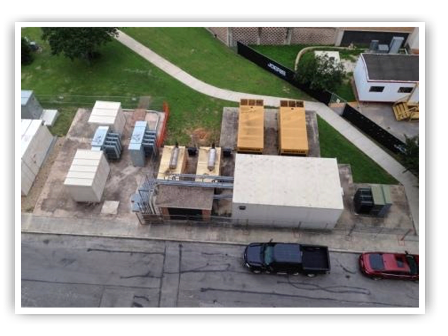Emergency Generator Upgrades on the Long Campus
As part of planned activities to upgrade our campus electrical infrastructure, Facilities Management is pleased to announce that a project to install additional emergency generators will begin this summer. The most noticeable activities will begin in mid –July and extend through October at the Long Campus “Generator Farm”, the area next to the main electric substation just across the street from the Central Energy Plant. There are no planned campus utility impairments which are required to complete this project.

This scope of work includes upgrading two aged 500 kilowatt generators with two new 1 Megawatt generators. This will not only increase reliability but it will supplement our campus emergency power generating capacity by an additional 1 Megawatt.
On that note, what is a megawatt anyway? According to the website ”answers.com:”
An average U.S. household uses about 10,000 kilowatt-hours (kWh) of electricity each year. A watt is a unit of power, or energy per unit time, so it's the rate at which energy is being used. A kilowatt-hour (or 1000 watt-hours) is a unit of energy, so 10,000 kWh is how much total energy each household uses over the course of a year. This means that each household, on average, uses energy at a rate of about 1 kilowatt (1000 watts, which equal to ten 100-watt light bulbs). Therefore, one megawatt is equal to one million watts, so for one instant, one megawatt can power 1000 homes.
(Reference: http://www.answers.com/Q/How_many_homes_can_a_megawatt_power)
For more information please contact Michael Cooper - Construction Project Manager, at 567-2899 or cooperm2@uthscsa.edu.

